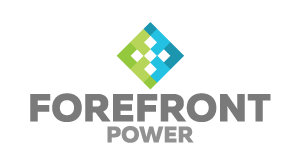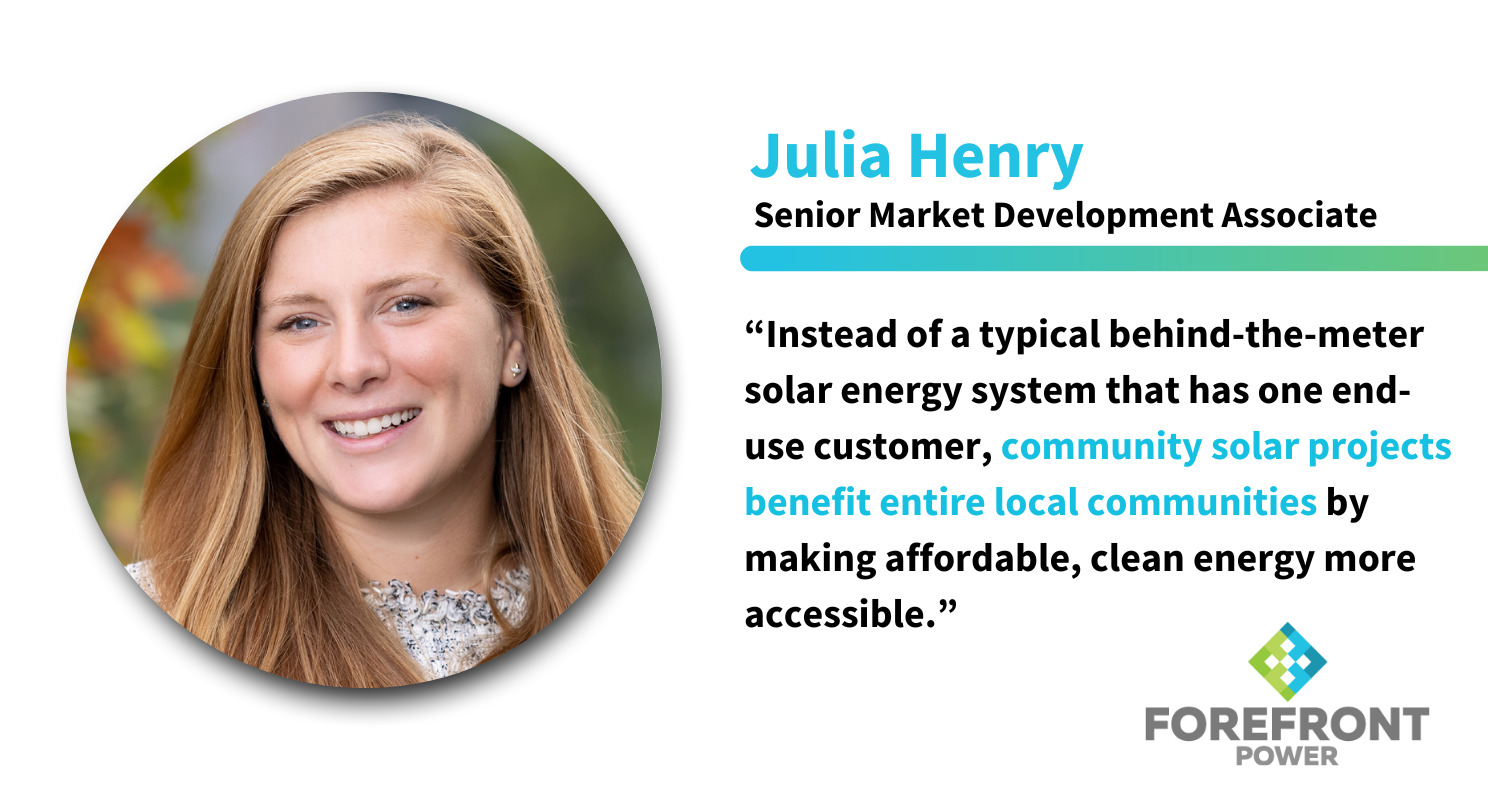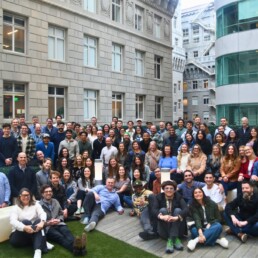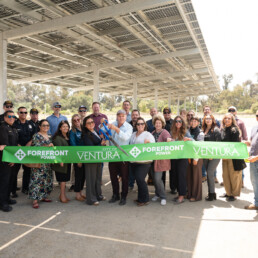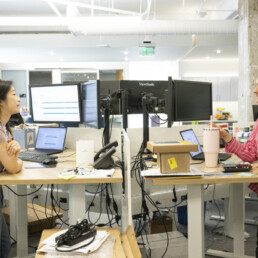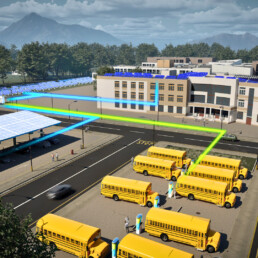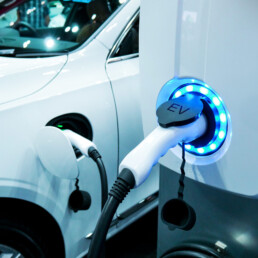We spoke to Senior Market Development Associate Julia Henry to learn about her work as our commercial lead for Illinois community solar and the strategy behind ForeFront Power’s expansion into new markets.
Where are you from originally?
JH: I grew up in Long Island, New York, but now I live in San Francisco where ForeFront Power corporate headquarters are.
What do you like to do in your free time? Do you have any hobbies?
JH: My hobbies are mostly outdoor activities like running, hiking, and skiing. Thankfully, San Francisco is a great place for those activities.
What did you want to be when you grew up?
JH: When I was in elementary school, I originally wanted to be a scientist. That eventually evolved into me wanting to become an engineer because of my interest in math and science and the more practical applications of engineering in the real world.
How did you end up working in the renewable energy field?
JH: When I went to college, I decided to study environmental engineering, but I was definitely more into the concept of renewables than the water and air pollution focused classes I took. I studied a lot of different environmental problems in college and many didn’t have tangible solutions, but renewable energy felt like a real life solution to climate change people were actively working on. Once I was out of undergrad, I started working at a renewable energy consulting firm and have been in the industry ever since.
How did you find ForeFront Power?
JH: After being on the consulting side of renewables, I knew that I wanted to shift towards the developer side of projects in an origination type role where I could feel like I was enabling projects from the very beginning.
I found out about ForeFront Power from a recruiter reaching out on Linkedin. I talked to the SVP of Sales, Rachel McLaughlin, about a few different roles on her team, and the one I ended up in was the perfect juncture of the type of development work I was interested in.
What are your responsibilities as a ??Market Development Associate at ForeFront Power?
JH: Other folks have similar titles related to Market Development at ForeFront Power, but my role is specifically focused on community solar in Illinois. I’m the commercial lead for Illinois community solar, which means I oversee our strategy for developing community solar projects in that market. My day to day can vary a lot, but that’s one of things I like about this role.
Depending on what stage the market is at, my responsibilities can include identifying the best places for us to sign land options, strategizing on how we can maximize our program awards in the market, or working directly with partners in the market to ensure we are successful once we have program awards. I also do some work in markets where state legislation hasn’t been passed yet, making sure we’re ready to hit the ground running for when that legislation (hopefully) is passed.
What do you find most challenging about working in the community solar market?
JH: Staying on top of changing program rules and making decisions based on limited information can be very challenging. Programs are constantly evolving and we have to continuously evolve our strategy to participate to the best of our ability in that program.
Of course, that’s part of the work of what our whole team does, from the behind the meter team to our new eMobility team. We’re constantly evolving to meet the changing landscape and be the best developer we can be.
How does the community solar landscape differ from traditional solar?
JH: When compared to traditional behind-the-meter solar, community solar could be considered to be front-of-meter solar since you’re connecting directly to the electricity grid instead of connecting at a customer’s meter. The framework is different in terms of how the product is actually enabled. There is no power purchase agreement with an end use customer that allows us to build the project. You’re getting that program award or something from the state or a tariff that is allowing the project to connect.
What benefits can community solar bring to local communities?
JH: Instead of a typical behind-the-meter solar energy system that has one end-use customer, community solar projects benefit entire local communities by making affordable, clean energy more accessible. The obvious benefits are electricity bill discounts. If folks are getting their energy via community solar, they can save on their utility costs that way. Local landowners can also benefit from community solar projects on their land. If a community solar project is built on their land, we rent the land from them and they gain an additional income stream.
ForeFront Power has really good relationships with our landowners and the average community members who are often the neighbors of these projects. When we go through the permitting process, we make sure to engage with that local community, hear them out, and understand what’s best for them. Maybe that means we move a project further away from the road or add trees around the project to prevent visual disruption from street view, but we’re always willing to listen and incorporate those suggestions from the local community.
What do you envision for the future of the energy industry?
JH: More and more things need to be electrified in the transition from fossil fuels towards green energy. A renewable future also requires electric vehicles, heat pumps, and charging methods for many things that are currently reliant on natural gas. As we build more energy infrastructure, our energy needs are going to increase and not decrease. More electrification will lead to higher electricity needs. .Renewables are not going anywhere because they are a clear solution to meeting that problem.
What is ForeFront Power’s role in building that future?
JH: Especially as we move into fleet electrification, we’re leveraging our team’s internal expertise and hiring people that bring additional expertise to become a well-rounded, holistic energy partner. Based on our collective experience developing renewable energy projects and building customer relationships, we already have a lot of the existing infrastructure to build projects suited to their energy needs. Now, we’re seeing customers come to us saying, we want to electrify our fleets, can you help us do that too?
ForeFront’s role is also building more solar capacity for that greater energy demand and continuing to expand particularly into new community solar markets is a great way to do that. So far we’re seeing a lot of success in expanding community solar in Illinois as well as several other community solar markets we are active in.
What are your hopes for the current administration in terms of energy and infrastructure policy?
JH: Because community solar is enabled by state legislation, I’m rooting for individual states to pass their community solar bills. Hopefully, more bills across the country are passed considering it has been proven time and time again that these types of projects are beneficial to the grid and to local communities.
Working in the solar industry teaches you really quickly how important local politics are. We are getting permits from local authorities all the time. In your everyday life, you don’t necessarily think about how important local politics are, so it’s inspiring to see how much of an impact they can have. The only reason some of our projects are enabled is because of the local folks who are supportive.
What advice would you give to young people pursuing energy careers today?
JH: There’s so much to be done in the renewable energy industry and what’s interesting to me about energy careers is that there are so many different paths you can take. There are so many different roles within ForeFront Power that cater to different skill sets.
For example, I’m the type of person who sees the bigger picture and likes bringing all these pieces together and working cross-functionally with the specialists that exist within the organization. I’m not a project engineer. I’m not building solar layouts myself, nor am I a development project manager and getting projects permitted. While I don’t do a lot of really important aspects of project development, I have found that I like where I fit into the puzzle in bringing together those various steps in the process all the way towards project monetization. In summary, we need all sorts of people within the world of renewable energy. It’s just a matter of figuring out where you can fit into that world.
Interested in learning more?
We would love to discuss how our solutions might be a fit for your organization. Contact one of our solar, storage, or e-mobility experts today:
